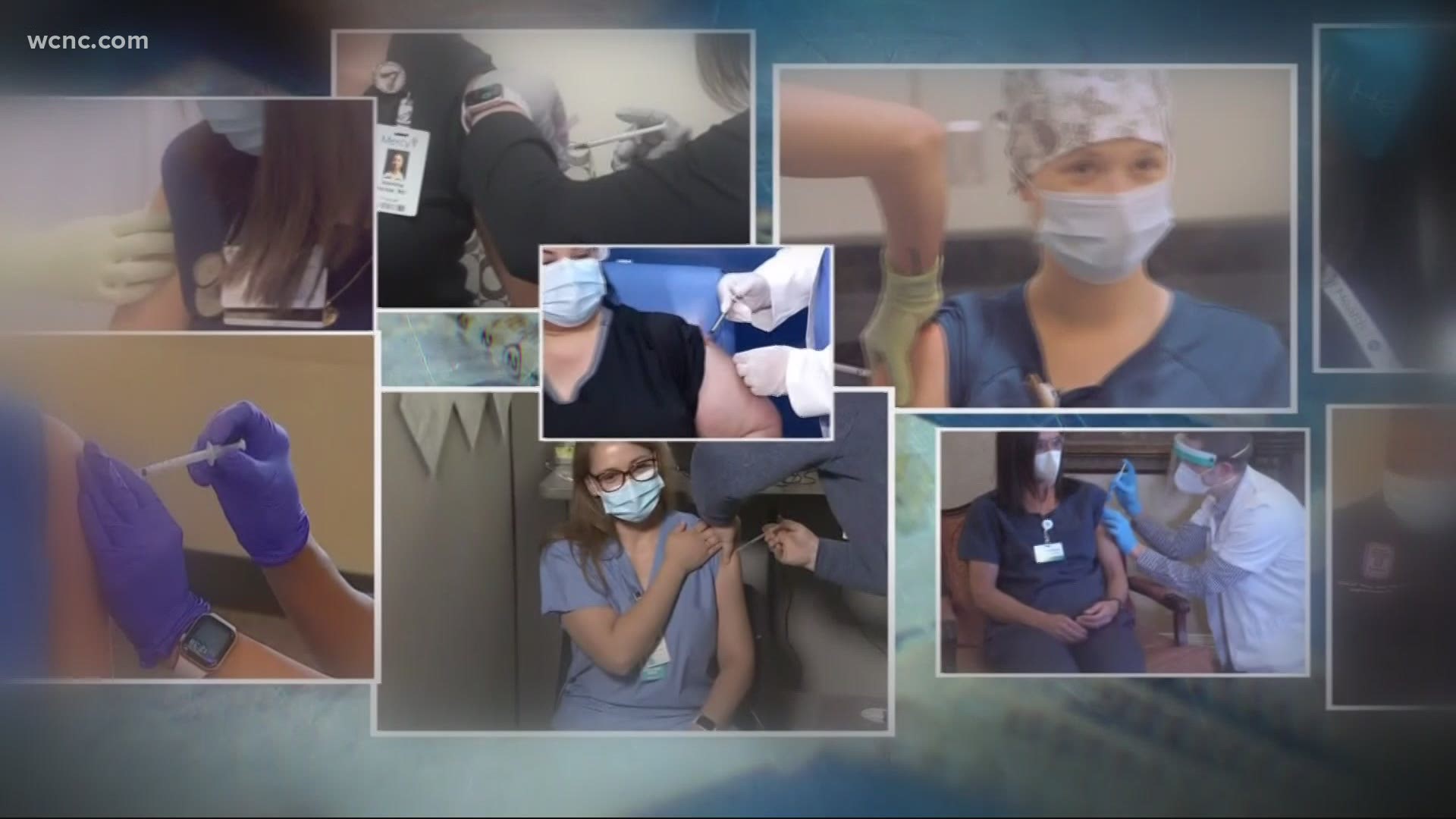CHARLOTTE, N.C. — As coronavirus vaccines continue to be shipped across the country, a new survey finds 60% of people polled are willing to roll up their sleeves once it is widely available. But there is some hesitancy to get vaccinated and research shows it's higher in minority groups.
Many see the coronavirus vaccine as a silver lining to a difficult and dark year.
“I’ve got an extra layer of PPE that I have not had up until this point,” said Dr. Chris Branner, specialty medical director of Urgent Care Services for Atrium Health.
Frontline workers most at risk of being exposed to the virus have been rolling up their sleeves to get the first doses of the coronavirus vaccine, as health care systems work through Phase 1A of distribution. It includes hospital workers and staff and residents of long term care facilities.
There are plans in the works for mass vaccination by the spring.
“I want to go to church again. I want to go to the movie theater again, I want to go to sporting arenas again. I want to see my family over Christmas again and the vaccine is a powerful tool we have that gets us one step closer as a society to getting to enjoy those things,” said Branner. It’s why he’s concerned there is hesitancy.
The Black community has been hit harder by the virus and studies show African Americans are more reluctant to get vaccinated. A feeling Dr. Branner said can be attributed in part to the Tuskegee experiment.
“There’s a long term historical perspective that out of that atrocity, human rights changes and commissions were set up in this country so that will never, ever, ever, happen again,” he said.
Other top concerns are pain, allergic reactions and how quickly the vaccine was developed. From his personal experience, Branner said soreness is temporary and allergic reactions have been rare.
“What operation warp speed helps to do is decrease barriers to say okay, we reached a safety conclusion on Monday, we need to have the next meeting on Tuesday," he said. "And if there’s another approval, we need to have that on Wednesday. So, things that used to take weeks simply from scheduling were happening in days."

